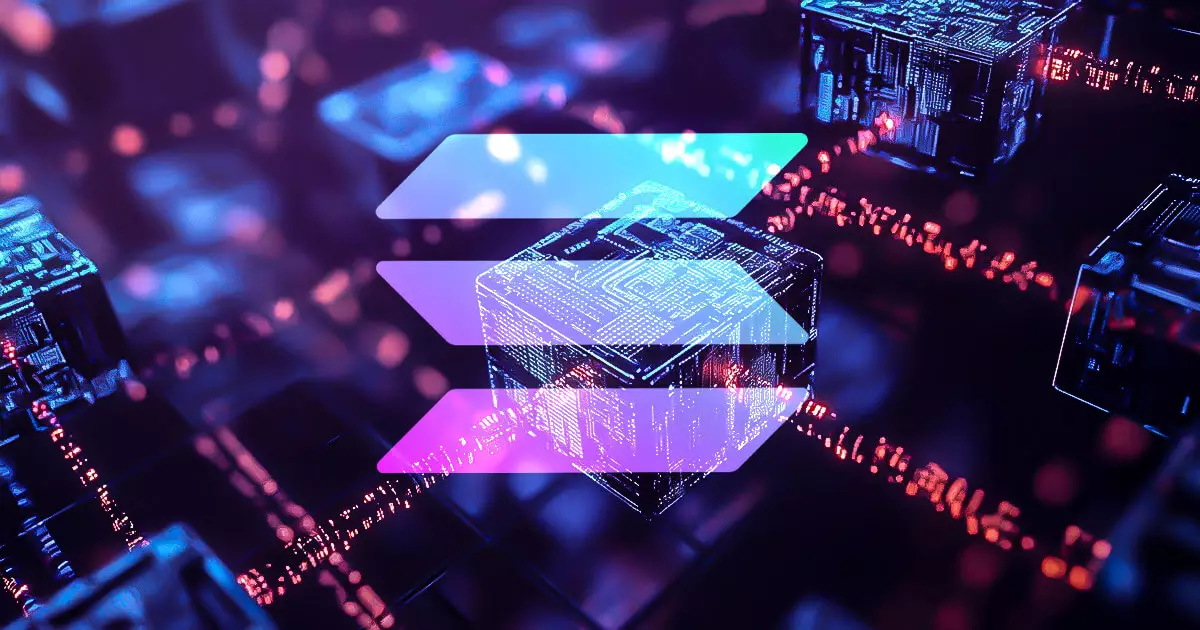The Solana blockchain community has recently expressed serious concerns regarding transaction delays experienced on the Coinbase platform. Users on social media platform X shared troubling screenshots that indicated transactions were taking as long as 45 minutes to process. This level of delay is not only frustrating for users but also starkly contrasts with the more efficient transaction times observed on competing networks like Base, Algorand, Arbitrum, and Avalanche. Such discrepancies raise questions about the reliability of Coinbase as a platform for executing Solana transactions, considering that Solana is positioned as the third-largest blockchain network, trailing only behind Bitcoin and Ethereum.
In defending itself, Coinbase attributed these delays to either wallet maintenance or broader blockchain issues, hinting that Solana’s own infrastructure might be to blame. This explanation triggered significant dissatisfaction within the crypto community, with many users arguing that Coinbase was dismissing the capabilities of Solana and unwarrantedly favoring its own Base network. Prominent voices within the Solana ecosystem were quick to counter these claims. For instance, Mert Mumtaz, CEO of Helius Labs, argued that the root of the problem lay within Coinbase’s internal indexing systems rather than the Solana infrastructure itself. This sentiment was echoed by Austin Federa, Solana’s Head of Strategy, who criticized Coinbase’s communication and insisted that the delays were a result of internal systems on the exchange side.
The need for clear and effective communication was underscored by the swift reactions from both users and Solana representatives. The community responded to Coinbase’s explanations by pointing out that the exchange had been experiencing challenges with Solana transactions for months. Moreover, a community note revealed stark performance discrepancies, highlighting Solana’s Time to Finality (TTF) of just 12 seconds compared to Base and Arbitrum, which lagged at 16 minutes. Although the Coinbase status page acknowledged the transaction delays affecting Solana, it claimed that issues were resolved as of November 28. Andrew Allen, a Protocol Specialist at Coinbase, confirmed that both the underlying technical problems and UI issues had been addressed.
Despite the resolution, skepticism about Coinbase’s commitment to Solana persists among some community members. Critics remain concerned that Coinbase’s struggles may reflect a deeper bias against Solana, especially as the exchange continues to develop its own layer-2 solutions. Nevertheless, some advocates, like Milk Road creator Kyle Reidhead, urged the community to look past these challenges and recognize the important role Coinbase plays in the crypto ecosystem. They argued that, rather than fixating on transient issues, users should appreciate the platform’s contributions to the growth of the cryptocurrency sector.
The discord over transaction delays highlights a crucial point about the importance of transparency and accountability within the crypto exchange ecosystem. As the ongoing evolution of blockchain technology continues to unfold, both protocols and exchanges must prioritize effective communication and collaboration. Only through constructive dialogue can barriers between platforms like Solana and Coinbase be dismantled, fostering a more cohesive crypto community dedicated to innovation and resilience.

